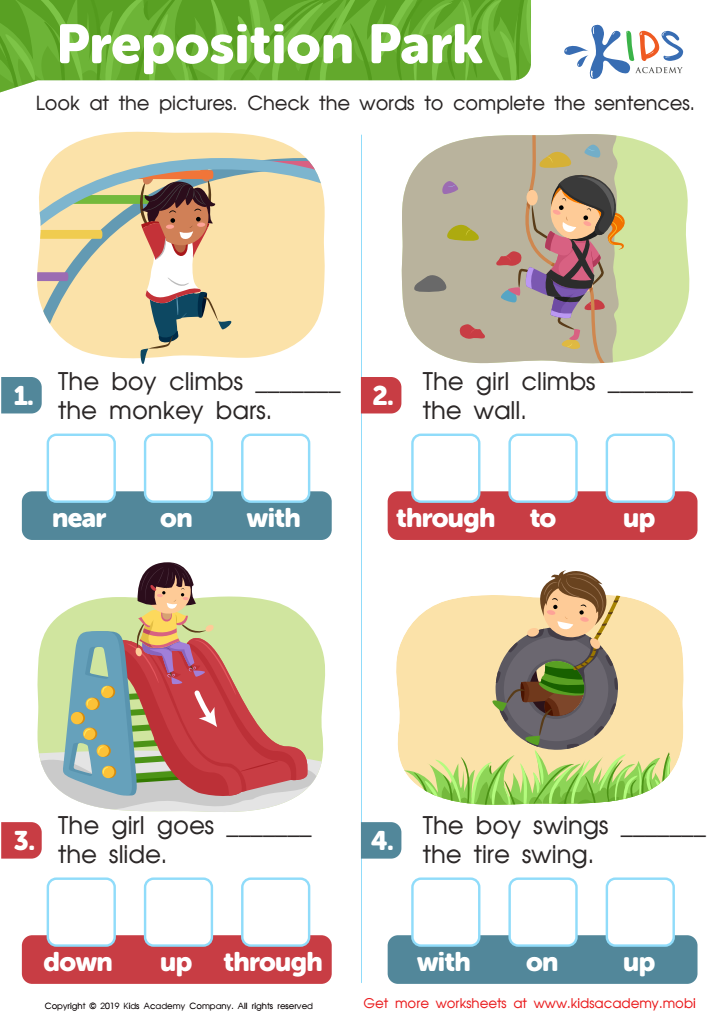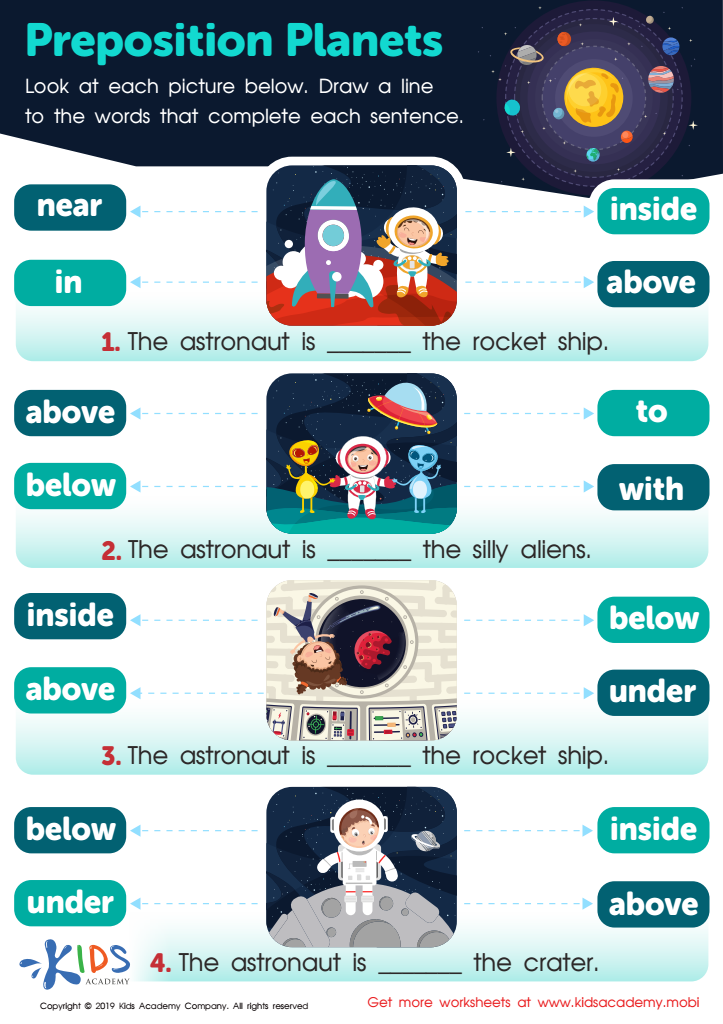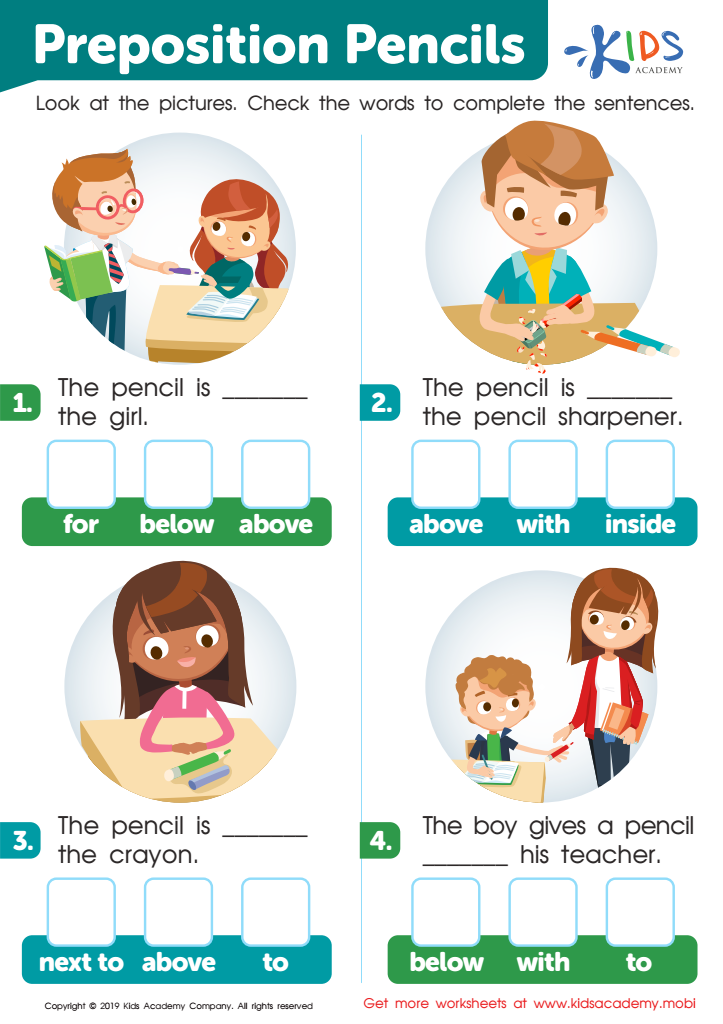Understanding prepositions Writing Worksheets for Ages 6-7
3 filtered results
-
From - To
Discover our engaging "Understanding Prepositions" Writing Worksheets for children aged 6-7! These specially designed worksheets aim to enhance students' grasp of prepositions through fun and interactive activities. With clear instructions and colorful visuals, kids will explore concepts like location, direction, and time, fostering both their language skills and creative thinking. Our worksheets encourage critical thinking and reinforce learning through practical application, making it easier for young learners to identify and use prepositions effectively. Ideal for both classroom settings and home practice, these resources are perfect for young writers eager to develop their grammar knowledge and writing confidence. Enrich your teaching toolkit today!


Preposition Park Worksheet


Preposition Planets Worksheet


Preposition Pencils Worksheet
Understanding prepositions is crucial for children aged 6-7 as it forms the foundation for effective communication and writing skills. Prepositions, which indicate relationships between words and often describe direction, location, and time, help children build clarity in their writing. For parents and teachers, fostering a grasp of prepositions enhances a child's ability to express thoughts precisely, which is fundamental for academic success.
At this young age, children are developing their written language skills and learning to construct sentences. Proper use of prepositions can enrich their descriptions, allowing them to paint clearer pictures with their words. This skill is not only vital for writing assignments but also for comprehension in reading; as children become adept at understanding prepositions, they can better grasp the context and meaning behind what they read.
Moreover, engaging children in activities that involve prepositions, such as games or storytelling, makes learning enjoyable and interactive. It also serves as a platform for parents and teachers to communicate effectively, as shared language development strategies strengthen student outcomes and build positive educational environments. Ultimately, caring about prepositions contributes to a well-rounded linguistic foundation, paving the way for their future literacy and learning experiences.
 Assign to My Students
Assign to My Students



















